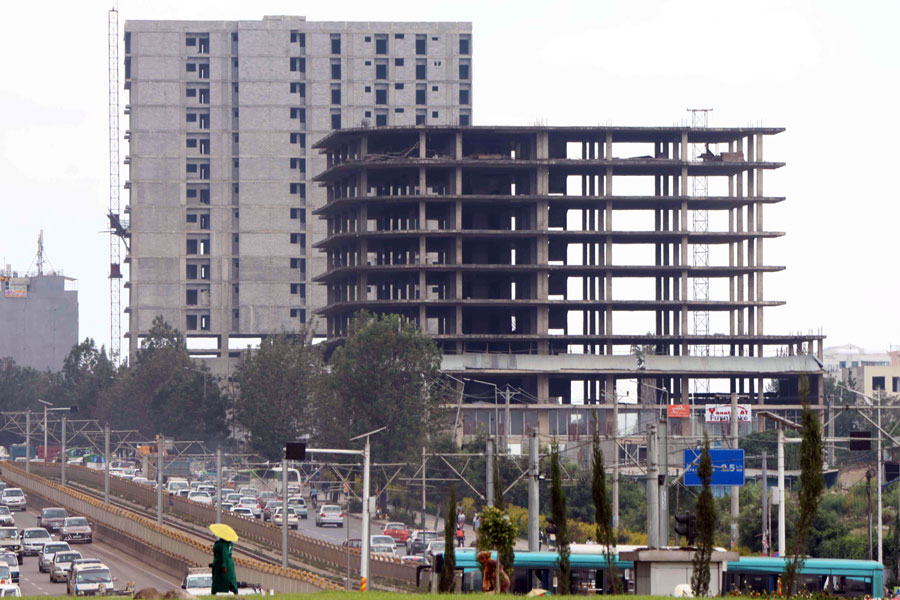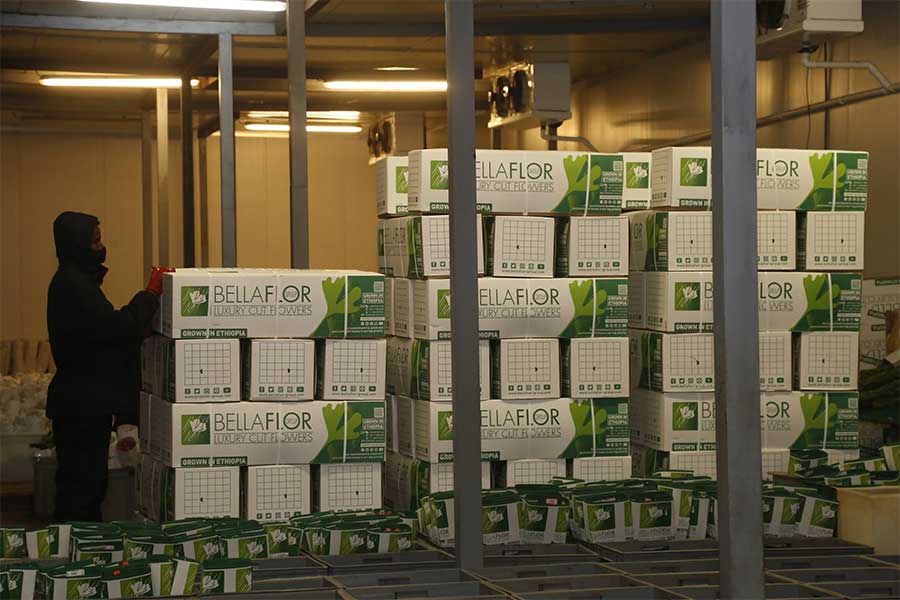
Fortune News | Apr 27,2025
Jun 15 , 2024
By Abdulmenan M. Hamza
Central Bank's new draft directives aim to close loopholes and tighten the reins on credit exposures. Removing government guarantees as cash substitutes and including state-owned enterprises as related parties are set to curb unchecked borrowing. But will these changes be enough to steer CBE and the banking sector towards stability, asks Abdulmenan M. Hamza (abham2010@yahoo.co.uk), a financial analyst based in London.
The National Bank of Ethiopia (NBE) has issued several crucial reforms targeting the banking industry as part of its three-year strategic plan, starting in 2023. These reforms are encapsulated in various directives, addressing key issues like related parties and limits on larger exposures. Historically, the central bank's primary role has been to ensure the stability of the financial sector.
However, successive governments' ideological orientations have often influenced the central bank to align its regulatory approach with their economic policies, sidelining its primary responsibility and causing significant repercussions for the financial system.
The Commercial Bank of Ethiopia (CBE) is a prime example of this issue. Regarded as a crucial policy tool by the government, the state-owned bank has frequently been allowed to bypass NBE's regulations. The preferential treatment has led to severe problems, including substantial credit and systemic risks within the banking industry. Regulatory frameworks designed to curb credit concentration, encourage diversification, ensure adequate capital, and prevent related party transactions have been undermined by exceptions favouring government and public enterprises.
One significant issue has been the treatment of guarantees issued by the federal government as cash substitutes. Under existing directives, loans fully guaranteed by the federal government are excluded from limits on single borrowers and related counterparties. This exclusion has allowed the CBE to extend substantial credits to public enterprises with no regard for capital adequacy or credit serviceability, exposing the state bank to enormous credit risk and, by extension, increasing the systemic risk to the entire banking sector.
The situation is exacerbated because the CBE has extended credit to single borrowers in amounts far exceeding its capital. Many of these borrowers have questionable financial capacity to settle their debts, a situation known to central bank authorities. CBE's capital was also artificially inflated in 2017 by holding a 10-year government bond, which remains outstanding.
In response to the growing concerns, the government incorporated the Liabilities & Assets Management Corporation (LAMCO) a few years ago to absorb the debts of struggling public enterprises and address these issues. However, the recent parliamentary report by Minister of Finance Ahmed Shide unearthed the difficulties LAMCO faces in servicing its debts to the CBE due to a sluggish privatisation process.
Consequently, the CBE has found itself in a precarious financial position.
Recognising these problems, the NBE has released draft directives addressing the pitfalls of a directive issued in 2012 (No. SBB/53) governing credit exposures to single and related counterparties. The new draft directive on related parties introduces noteworthy changes, such as removing the "unconditional obligation or guarantee" issued by the federal government as a cash substitute. The definition of "related party" has been broadened to include state-owned banks and enterprises; the CBE and these enterprises are now treated as related parties.
The change mandates the CBE to apply the "Arm's Length Principle" in its dealings with these entities. These amendments, combined with the new limitations on the amount of credit the CBE can grant to related parties, are expected to curtail unchecked borrowing by public enterprises and government agencies, contributing to the financial sector's stability.
The central bank's draft directive on large exposures is another critical reform. Its Financial Stability Report released in April 2024 revealed that loans to the top 10 borrowers accounted for 23.5pc of the banking industry's credits as of June 2023. Such a high level of credit concentration poses a consequential risk to the banking industry. Hence, the draft directive sets several limits on larger exposures.
While this measure is commendable, there are some concerns.
The draft directive maintains the "cash substitute" definition from the 2012 directive, contradicting the draft directive on related party transactions. It opens a potential loophole for abuse, requiring immediate rectification to prevent further systemic risks.
The CBE's financial troubles have derived from undue state intervention. For the banking sector to thrive, the NBE needs regulatory autonomy, and the CBE must play by market rules. Increased supervision and adherence to new directives could address risks and restore confidence. These reforms are crucial, but success depends on a steadfast commitment to integrity and stability.
PUBLISHED ON
Jun 15,2024 [ VOL
25 , NO
1259]


Fortune News | Apr 27,2025

Viewpoints | Oct 02,2021

Radar | Mar 11,2024

Featured | Mar 30,2019

My Opinion | Jan 05,2019

Agenda | Oct 20,2024

Life Matters | May 27,2023

View From Arada | Jul 06,2019

Radar | May 16,2020

Agenda | Mar 05,2022

Photo Gallery | 178501 Views | May 06,2019

Photo Gallery | 168697 Views | Apr 26,2019

Photo Gallery | 159509 Views | Oct 06,2021

My Opinion | 137080 Views | Aug 14,2021
Commentaries | Oct 25,2025

Dec 22 , 2024 . By TIZITA SHEWAFERAW
Charged with transforming colossal state-owned enterprises into modern and competitiv...

Aug 18 , 2024 . By AKSAH ITALO
Although predictable Yonas Zerihun's job in the ride-hailing service is not immune to...

Jul 28 , 2024 . By TIZITA SHEWAFERAW
Unhabitual, perhaps too many, Samuel Gebreyohannes, 38, used to occasionally enjoy a couple of beers at breakfast. However, he recently swit...

Jul 13 , 2024 . By AKSAH ITALO
Investors who rely on tractors, trucks, and field vehicles for commuting, transporting commodities, and f...

Oct 25 , 2025
The regulatory machinery is on overdrive. In only two years, no fewer than 35 new pro...

Oct 18 , 2025
The political establishment, notably the ruling party and its top brass, has become p...

Oct 11 , 2025
Ladislas Farago, a roving Associated Press (AP) correspondent, arrived in Ethiopia in...

Oct 4 , 2025
Eyob Tekalegn (PhD) had been in the Governor's chair for only weeks when, on Septembe...

Oct 25 , 2025 . By YITBAREK GETACHEW
Officials of the Addis Abeba's Education Bureau have embarked on an ambitious experim...

Oct 26 , 2025 . By YITBAREK GETACHEW
The federal government is making a landmark shift in its investment incentive regime...

Oct 29 , 2025 . By NAHOM AYELE
The National Bank of Ethiopia (NBE) is preparing to issue a directive that will funda...

Oct 26 , 2025 . By SURAFEL MULUGETA
A community of booksellers shadowing the Ethiopian National Theatre has been jolted b...